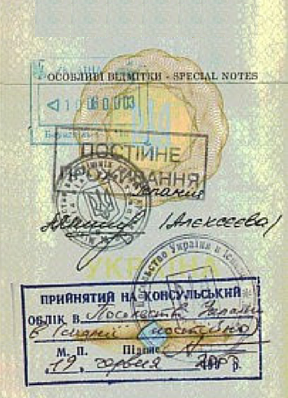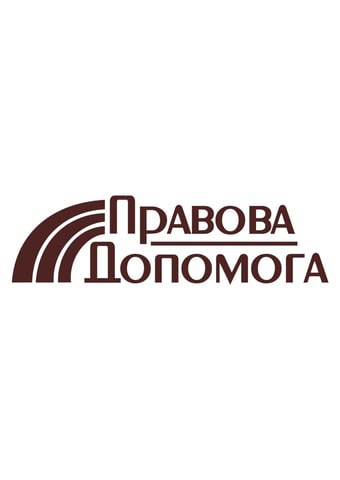Digital Nomad Visa: Best Countries for Freelancers and IT Professionals in 2025
Cost of services:
Reviews of our Clients
... our work on joint projects assured us of your high level of professionalism
The ability to work remotely via the internet from anywhere in the world has become a new reality for thousands of freelancers and IT professionals. What was once a privilege is now a pathway to a lifestyle free from office routines and national borders. Today, digital nomads can move abroad and work from any country while earning income online and combining work with travel.
However, there is one caveat: tourist visas do not permit employment, and traditional work visas require a contract with a local employer. This is why many countries have introduced digital nomad visas — official permits that allow freelancers and remote workers to live in a country for a set period while working for foreign companies or running their own business.
Why are countries launching these visas? What special tax regimes do they offer, and what are the requirements for applicants? Most importantly, which 10 countries are the best for remote workers in 2025? We cover it all in this article.
You might also like: Digital Nomads in Spain: How to Get the Digital Nomad Visa and Cut Your Tax Burden
Why Are Countries Introducing Digital Nomad Visas?
Digital nomad visas benefit both freelancers and the countries that issue them. The main reasons behind the creation of special digital nomad programs include:
- Digital nomads spend money on housing, transportation, food, and entertainment, supporting the local economy.
- Countries use these programs to attract highly skilled professionals.
- Governments compete to attract highly skilled workers by trying to offer the most favorable conditions, including tax incentives and streamlined application procedures.
- Previously, many digital nomads worked while on tourist visas, which posed legal risks. These new programs allow them to reside and work legally without violating immigration laws.
You might also like: Digital Nomad in Croatia: How to Get a Visa
Taxation Rules for Digital Nomads
One of the key concerns for digital nomads is understanding their tax obligations in the host country. In most cases, a digital nomad visa does not allow employment with local companies, which raises an important question: are they required to pay taxes in the country where they reside?
Key tax rules for digital nomads:
- Tax residency. In most countries, individuals who stay for more than 183 days per year are considered tax residents and must pay taxes under local laws. However, some countries make exceptions for digital nomads. For example, Croatia exempts them from paying local taxes entirely.
- Taxation of foreign income. Most countries that issue digital nomad visas exempt remote workers from local taxes if they earn income from foreign companies and do not generate revenue from local sources.
- Tax benefits for non-residents. Some countries offer reduced tax rates for foreigners. For example, Spain applies a 24% rate for non-residents instead of the standard 45%.
- Ukrainians earning income abroad may face the risk of double taxation. However, Ukraine has double taxation treaties with many countries, including Germany, the Czech Republic, and Portugal, which help prevent individuals from paying taxes twice on the same income.
You might also like: How to Determine Tax Residency: Guidelines for Ukrainians Working Abroad
Key Requirements for Obtaining a Digital Nomad Visa
To obtain a digital nomad visa, applicants must meet certain criteria. While the specific requirements may vary by country, most states offering such visas impose similar conditions.
- Countries issuing digital nomad visas want to ensure that applicants can support themselves financially. Most require a minimum monthly income, which typically ranges from €2,000 to €5,000. This must be verified through bank statements covering the last six months.
- Applicants must also prove they work remotely or run a business that is not tied to the country where they are applying for the visa. This usually involves providing a contract with a foreign company and documentation confirming business registration abroad.
- Most countries require a health insurance policy that covers medical treatment and hospitalization. The minimum coverage amount is typically €30,000.
- Many countries also ask for proof of accommodation, such as a rental agreement or property ownership documents.
- Applicants are usually required to provide a police clearance certificate from their country of citizenship or their most recent country of residence.
You might also like: How Much Cash Can You Legally Take Abroad?
Top 10 Countries for Freelancers Offering Digital Nomad Visas
Explore the best countries for digital nomads that provide favorable conditions for remote workers.
- Spain attracts remote workers with its mild climate, relatively affordable cost of living, and well-developed infrastructure. The digital nomad visa allows not only remote work but also provides a residence permit that can be renewed. An additional advantage is the ability to travel freely within the Schengen Area. The minimum required income is €2,646 per month. The visa is valid for one year and can be extended for up to three years.
- Croatia is one of the most popular destinations for digital nomads, with its main advantage being the absence of tax obligations for visa holders. However, the visa is issued for only one year, and the minimum required income is €2,539 per month.
- Portugal offers two categories of digital nomad visas: a short-term option (up to one year) and a long-term option (up to two years). The country also provides tax benefits for new residents, making it one of the most attractive locations for remote work. The minimum required income is €3,480 per month.
- Malta is a country that offers a flexible residence permit system, and the digital nomad visa can be valid for up to four years. The minimum income requirement is €3,500 per month. Depending on residency status, tax benefits may apply.
- Montenegro is one of the most affordable options for digital nomads due to its low cost of living and flexible income requirements starting at €1,400 per month. The visa is issued for two years and can be extended to a maximum of four years.
- Estonia was one of the first countries to introduce a digital nomad visa. The main requirement is a stable income and employment with a company not registered in Estonia. The minimum monthly income is €4,500, and the visa is valid for one year.
- Iceland offers one of the shortest digital nomad visas—just six months—but has the highest income requirement at €7,075 per month. It is a destination for those who value safety, sustainability, and unique nature, and who are prepared to spend significantly on living expenses.
- Although Germany does not offer a classic digital nomad visa, it does have a special freelance visa. This visa allows individuals to work in Germany either as self-employed professionals or for foreign companies. There is no fixed minimum income requirement, and the visa grants the right to legally work in Germany for a period ranging from one to three years.
- Italy has recently joined the list of countries offering a digital nomad visa. The minimum annual income requirement starts at €32,400, though the amount may increase depending on the number of family members included in the application. The first residence permit is valid for one year, while subsequent permits are issued for two years.
- The Czech Republic is an excellent choice for those looking to travel within the Schengen Area while living in a country with a relatively low cost of living. The visa is valid for one year and can be renewed. Applicants must show a monthly income of at least €2,500 and have a minimum of €5,000 in their bank account.
Legal Support for Obtaining a Digital Nomad Visa
Today, the Digital Nomad Visa offers an excellent opportunity to live and work legally in another country while combining a career with travel. Choosing a country depends on many factors, including income level, tax requirements, cost of living, climate, and personal preferences.
However, even when considering the best countries in the world for remote work, it is essential to evaluate every detail that can be difficult without proper experience. That is why it is important to consult an expert who can help you make the right and most beneficial decision for your specific situation.
As a law firm, we provide full support throughout the digital nomad visa application process, including:
- Consulting on the choice of country that best matches your needs and financial capabilities.
- Preparing and reviewing documents such as bank statements, employment contracts, and health insurance.
- Assisting with the application process, including form completion, translation, and document legalization.
- Advising on taxation issues, including analyzing your tax obligations in the selected country.
- Providing post-visa support such as residence registration, visa extension, or residence permit issuance.
We will simplify and speed up the process, help you avoid mistakes, and increase your chances of successfully obtaining a visa. Contact us, and we will handle every legal aspect of your new life abroad!
Our clients







